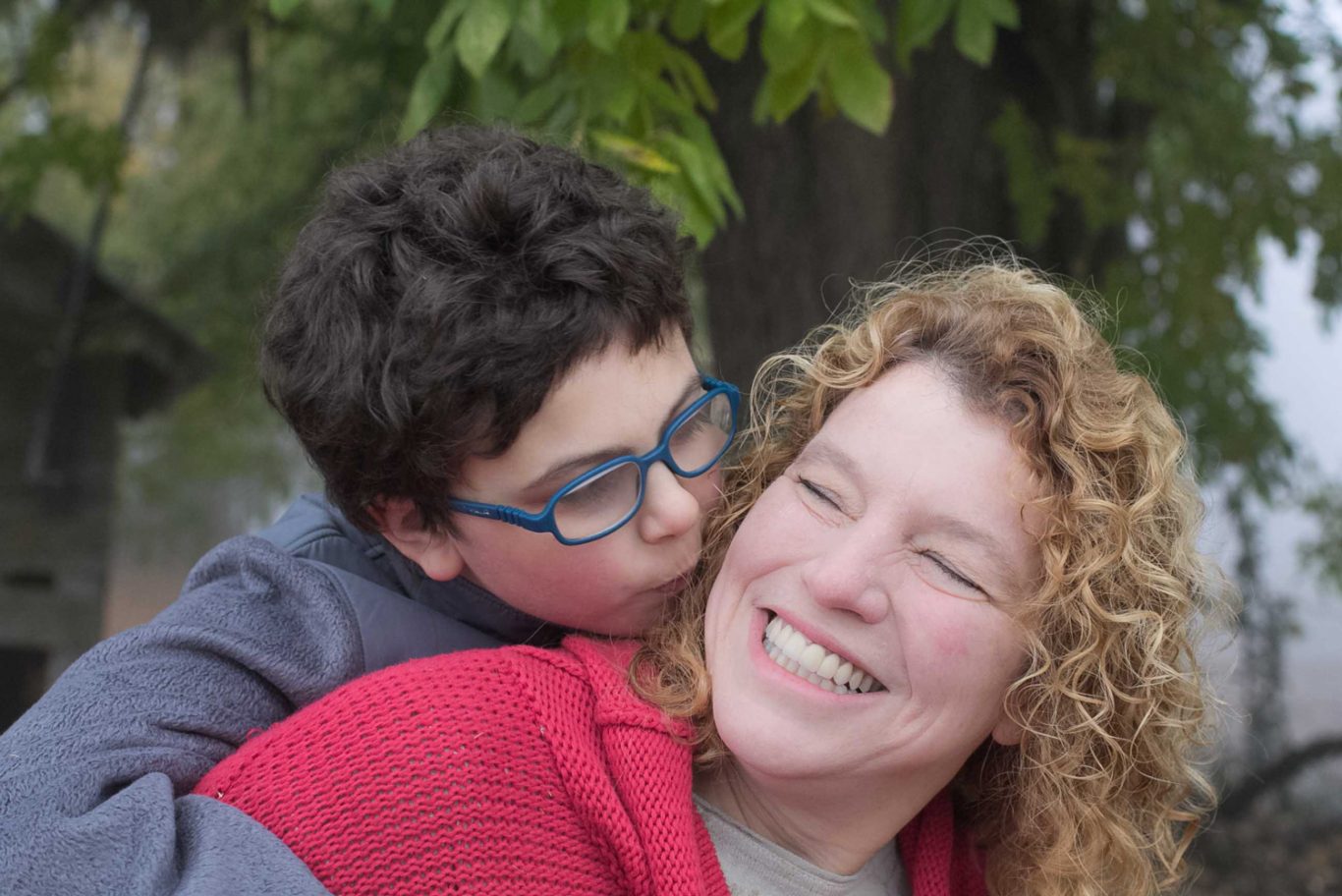Noticias
CEO Reflections on Hunger Action Month
CEO Reflections on Hunger Action Month
By Susannah Morgan, CEO, Oregon Food Bank
My first-born son had a hard time learning how to eat. Rather ironic thing to happen to a food bank leader, right?
Rhys struggled to get the hang of breastfeeding. In order to get enough nutrition into him, my wife would nurse him and then we fed him expressed breast milk with a syringe. Every two hours. For weeks. I thought I was going to literally lose my mind due to exhaustion – but he finally figured it out around his first month.
Then he struggled to eat solid foods. I would lovingly steam and puree organic vegetables and fruits – only to have them end up all over the floor. I learned that he would eat if he was entertained, and he ate particularly well if I sang for him while feeding him. “Dinner and a show” was the norm in our house.
Then at 15 months old, Rhys contracted a bad stomach bug, and he stopped eating. I took him to the doctor, who found that Rhys had lost 10% of his body weight. I started sobbing. I was his mom, it was my job to feed him, and I was failing. I knew then what despair feels like. It feels like a black hole is devouring your soul.
I had everything going for me. I had a job that provided enough income to afford nutritious foods. I had health insurance. I had enough work flexibility that I fed Rhys 16 of his 21 meals each week (he got five lunches at daycare). I had the time, energy, knowledge and equipment to create nutritious, homemade meals. I had the creativity and the energy for “Dinner and a show.” I even had a half-way decent singing voice. And I was still failing my son. He was, literally, starving.
Rhys’s difficulties with food turned out to be genetic. He is missing 25 genes from his seventh chromosome, a condition called William’s Syndrome that affects about 1 in 10,000 children. Thanks to a consult with a dietician and obscene amounts of olive oil in his purees, Rhys recovered, and he is a thriving, loving, special 10 year old now.
But, I have never forgotten what it feels like to know that your child is not eating enough. It is the worst sort of helplessness and emotional agony. It is soul-killing.
September is Hunger Action Month. We are especially highlighting the heart-breaking prevalence of childhood hunger.
Here is the truth:
- 177,000 children in Oregon live in food insecure households – 1 in 5 kids!
- One out of every three people who receives food assistance from the Oregon Food Bank Network is a child – under the age of 18. Nearly one out of every two kids, K-12, in Oregon qualify for free meals – which means they are being raised in poverty.
- No matter their economic situation, nearly all parents will protect their kids. Mom or Dad will skip meals, so that the kids have enough calories, if not enough micronutrients. I absolutely understand that choice – much better to have an empty belly than stare into that black hole of despair.
We can do better than this. At Oregon Food Bank, we envision an Oregon where no one caring for a child – no mom, no dad, no nana, no grandpa, no auntie – no one ever has to look into that black hole.
Together, with a huge community of supporters, we are building an Oregon that acknowledges that food is a basic human right. And ultimately, together, we will build resilient communities that never go hungry.
At Oregon Food Bank, we believe that food and health are a basic human right for all. Yet even with the historic Student Success Act providing more lunches in schools beginning in 2020, it’s not enough to ensure that no child goes hungry.
Take action this September to fight child hunger. Together, we can end hunger. We eliminate hunger by helping children access nutritious food today; and building community power to ensure that all children have the opportunity to succeed in school, access quality health care, and for their families to afford safe, secure housing.
